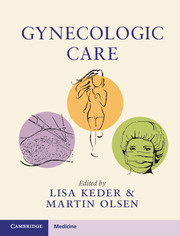Book contents
42 - Evidence-Based Medicine
from Section 6 - General Considerations
Published online by Cambridge University Press: 01 February 2018
Summary
Introduction
Several decades ago, clinical decision making underwent a profound transformation. Increasingly, clinicians were being asked to justify their care based on scientific evidence. The response was at times contentious. It was not as if prior clinical decisions were not evidence-based; clinicians often cited a variety of published studies that, in conjunction with clinical experience, supported their practices. Here is what was different: the process of clinical decision making was now subject to continual revision as newer, higher-quality evidence became available and was evaluated in the context of prior evidence. Long gone were the days when a pertinent patient management discussion began with the words “I had a patient once …”
Early proponents of evidence-based medicine (EBM) defined it as “the conscientious, explicit and judicious use of current best evidence in making decisions about the care of individual patients. The practice of evidence-based medicine means integrating individual clinical expertise with the best available external clinical evidence from systematic research.” This definition is timeless. Linking clinical judgment to EBM explicitly extended an olive branch to older practitioners who may have felt threatened by newer practices. But it was more than ceremonial: it soon became clear that sound clinical judgment, especially when honed over many years of medical practice, is critical in assuring that evidence is applied appropriately. Indeed, applying evidence without clinical judgment was as perilous a path as applying clinical judgment without evidence.
In this chapter I will focus on clinical epidemiology, the foundation of evidence-based medicine, and discuss its application to clinical decision making. I will also review the basics of study design and interpretation. I will cover the conversion of relative measures of effect to absolute measures using examples of clinical relevance. An efficient three-step strategy to retrieve high-quality evidence will be introduced followed by application of evidence to individuals and populations through evidence-based practice recommendations.
The Foundation: Clinical Epidemiology
As anatomy provides the foundation of physical examinations and surgical management, so the principles of clinical epidemiology provide the foundation for evidence-based clinical decision making. Thus, a familiarity with basic elements of study design and outcome measurements is important. Much of the medical literature, however, consists of interesting observations that generate hypotheses and do not change clinical practice.
- Type
- Chapter
- Information
- Gynecologic Care , pp. 402 - 410Publisher: Cambridge University PressPrint publication year: 2018



